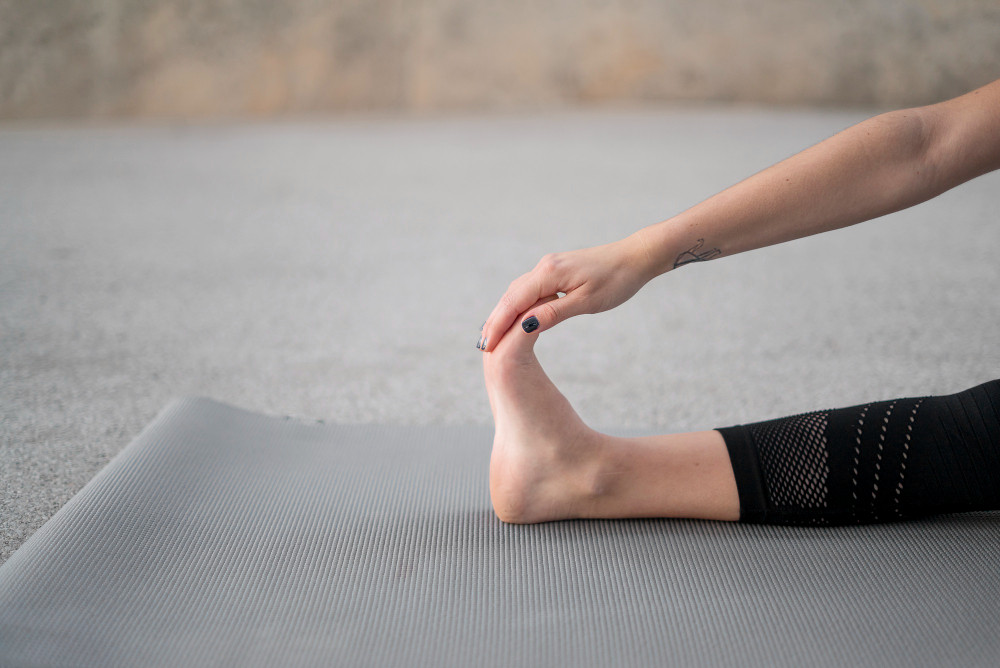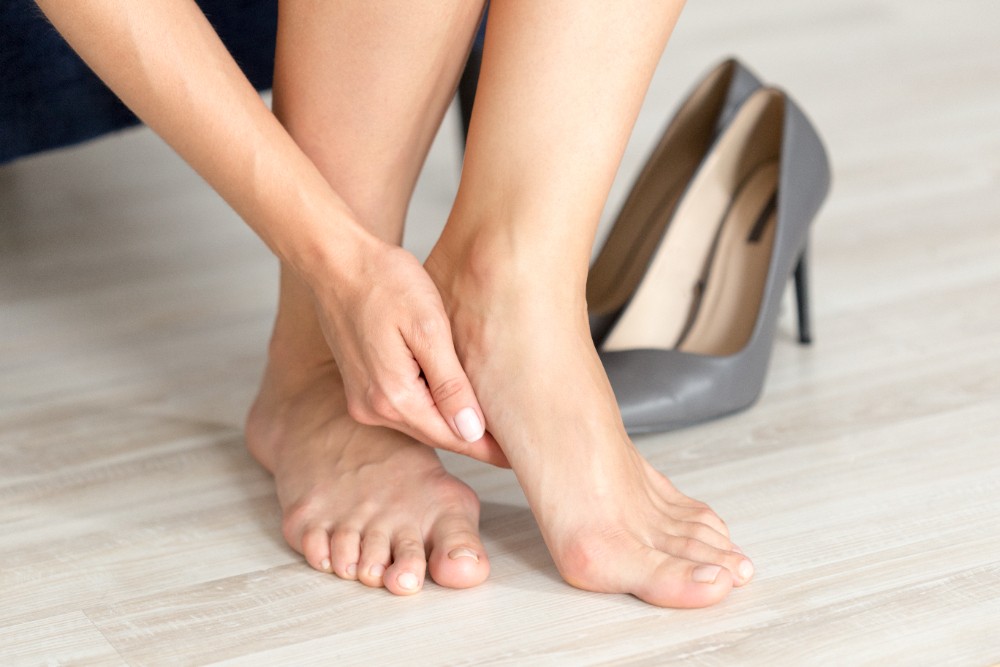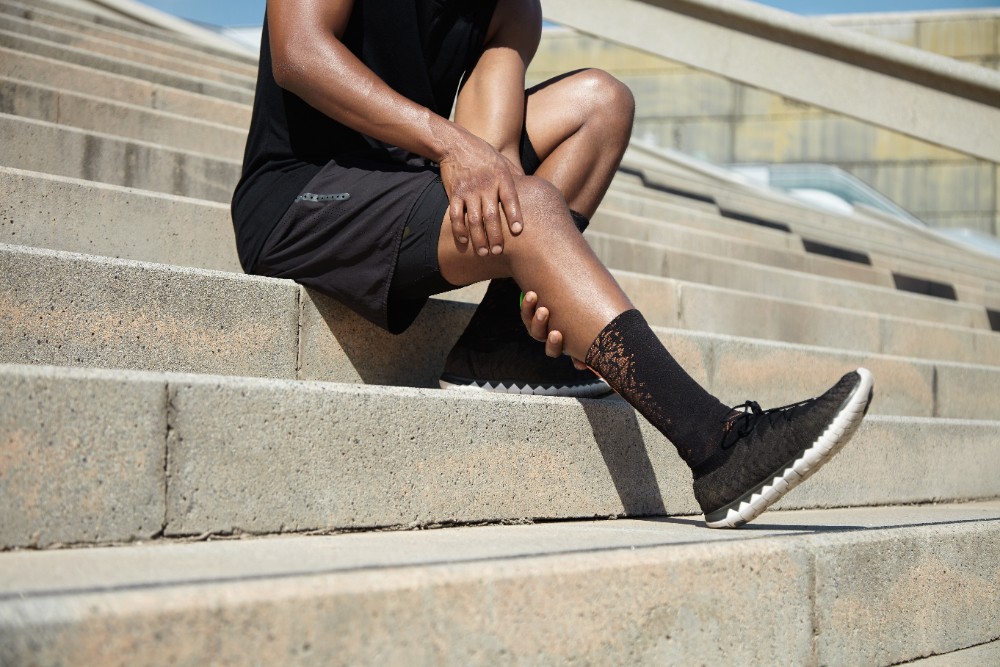The soles of your feet play a crucial role, as they support your entire body when you walk. However, heavy activities or injuries can sometimes cause discomfort or pain in this area. The causes of foot pain can vary, and so can the treatments. Understanding the causes and available treatments is essential for managing foot pain effectively.
Common causes of foot pain and their treatments
Since the soles of your feet bear the weight of your body, they are prone to pain from various activities, injuries, or health issues. Below are some common causes of foot pain and recommended treatments:
Sprains or muscle strains
A sprain occurs when the ligaments (the tissue connecting bones) are stretched or torn, often due to sports activities, falls, or accidents. Symptoms include pain, bruising, and swelling.
Treatment for sprains can be done using the PRICE method:
- Protection: Protect the injured area with crutches, a splint, or a brace
- Rest: Limit physical activity to avoid putting pressure on the injured area
- Ice: Apply a cold compress wrapped in a towel to the injured area
- Compression: Wrap the affected area with an elastic bandage to reduce swelling
- Elevation: Raise the injured foot above heart level to reduce swelling
Plantar fasciitis
Plantar fasciitis is an inflammation of the plantar fascia, a thick band of tissue that runs from the heel to the toes. This condition causes sharp, stabbing pain, especially in the heel or arch of the foot, typically felt in the morning.
Risk factors for plantar fasciitis include obesity, wearing uncomfortable shoes, walking barefoot frequently, or having flat feet or very high arches.
Treatment for plantar fasciitis can involve medication, cold compresses, and physical therapy to help alleviate symptoms.
Metatarsalgia
Metatarsalgia is pain in the ball of the foot, often described as sharp, stabbing, or burning. It typically worsens with standing, running, or walking and is common among athletes or those who engage in high-impact activities.
Treatment for metatarsalgia can involve using the PRICE method, taking pain relievers, doing stretching exercises, and wearing appropriate footwear.
Bunions
A bunion is a bony bump that forms on the joint at the base of the big toe or pinky toe, often caused by prolonged pressure on the joint or wearing narrow-toed shoes.
Treatment for bunions can vary depending on the pain and deformity. Options include wearing comfortable shoes, taking medications, or having surgery.
Neuroma
A neuroma is a thickening of nerve tissue, often forming between the toes after an injury. It can cause burning pain, numbness, or the sensation of a pebble in the shoe.
Treatment for neuromas can involve taking medication, changing footwear, or altering walking and exercise habits.
There are many types of injuries that can affect the soles of the feet. Each type of injury is caused by different factors and requires different treatments. If you experience persistent pain in the soles of your feet, you should immediately check with the doctor.
You can also make use of the consultation features that are available in the Ai Care application by downloading the Ai Care application from the App Store or Play Store.
Looking for more information about other diseases? Click here!
- Sean Edbert Lim, MBBS
Cleveland Clinic. Foot Pain. Available from: https://my.clevelandclinic.org/health/symptoms/foot-pain
Brooks, L. (2023). Available from: https://www.verywellhealth.com/bottom-foot-pain-5097184
Fletcher, J. (2024). Causes and treatments for pain in the arch of the foot. Available from: https://www.medicalnewstoday.com/articles/325953
Cleveland Clinic. Metatarsalgia. Available from: https://my.clevelandclinic.org/health/diseases/15890-metatarsalgia
Mayo Clinic. Plantar Fasciitis. Available from: https://www.mayoclinic.org/diseases-conditions/plantar-fasciitis/symptoms-causes/syc-20354846
John Hopkins Medicine. Foot Pain and Problems. Available from: https://www.hopkinsmedicine.org/health/conditions-and-diseases/foot-pain-and-problems











